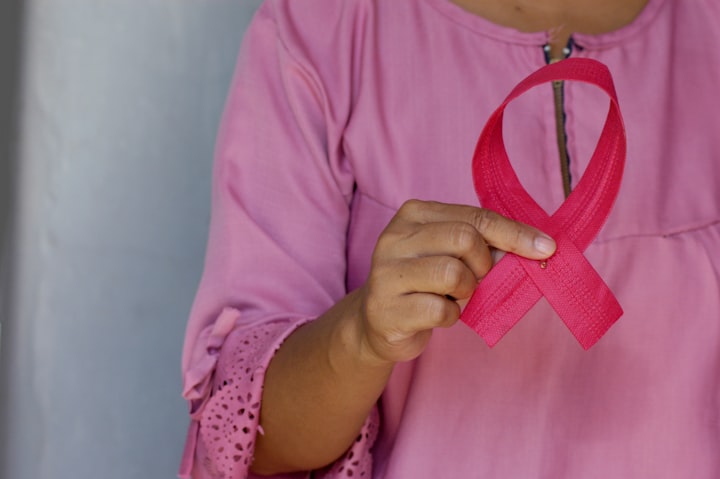
The most common kind of cancer in women is breast cancer, which is treatable in 70 to 80 percent of individuals with early-stage, non-metastatic illness.
representing over 570,000 fatalities in 2015. Every year, almost 1.5 million women worldwide—25% of all cancer patients—are given a breast cancer diagnosis.
According to estimates, there will be 252,710 new cases of breast cancer among women in America in 2017.
Breast cancer is an incurable form of metastatic cancer that frequently spreads to distant organs such the bone, liver, lung, and brain.
A positive prognosis and a high survival rate can result from early diagnosis of the illness. Due to early diagnosis of the disease, the 5-year relative survival rate of breast cancer patients in North America is above 80%.
Mammography is a popular screening method for finding breast cancer and has been shown to significantly lower mortality.
Over the past ten years, other screening techniques, such as MRI, which is more sensitive than mammography, have also been used and researched. Numerous variables can raise the risk of getting breast cancer, including sex, aging, estrogen, family history, gene mutations, and bad lifestyle choices.
Women are 100 times more likely than males to develop breast cancer, and women also experience the disease at a higher rate.
Although breast cancer incidence rates rise annually in America, the fatality rates fall as a result of widespread early detection and cutting-edge medical treatments.
In recent years, biological treatments have been created and have successfully treated breast cancer. Here, we'll concentrate on recent research on the pathophysiology, associated genes, risk factors, and preventions of breast cancer.
With currently available treatments, advanced breast cancer with distant organ metastases is regarded as incurable. Breast cancer is a diverse illness at the molecular level;
Different treatment plans are used for various molecular subtypes. Breast cancer treatment is interdisciplinary and comprises both systemic therapy and locoregional therapy (surgery and radiation therapy).
Endocrine therapy for disease that is hormone receptor-positive, chemotherapy, anti-HER2 therapy for disease that is HER2-positive, bone stabilizing medications, poly(ADP-ribose) polymerase inhibitors for BRCA mutation carriers, and, more recently, immunotherapy are examples of systemic therapies.
Future treatment paradigms for breast cancer aim to personalize care as well as to de-escalate and escalate treatment based on tumor biology and early therapy response.
Equal access to therapeutic advances around the world continues to be the biggest issue facing breast cancer therapy globally, after new treatment improvements.
Over the course of their lifetimes, 12% of American women will be diagnosed with breast cancer, and more than 250 000 new cases of the disease were discovered there in 2017. The present state of local and systemic breast cancer treatment is the main topic of this review.
Risk factors of breast cancer.
Let's see how Risk Factors can be aligned from top to bottom.

- Aging
- Family history
- Reproductive factors
- Estrogen
- Lifestyle
How the Aging Affects Breast cancer.
Aside from sexual orientation, aging is one of the most significant breast cancer risk factors because it increases the likelihood of developing the disease.
In 2016, women over the ages of 40 and 60 were reported to account for 99.3% and 71.2% of all breast cancer-related fatalities in America, respectively.
Therefore, women aged 40 or older must get a mammogram screening in advance.
How the Family History Affects Breast cancer.
Almost one-fourth of all breast cancer cases include a family history component.
Women are more likely to contract this illness if their mother or sibling has the sickness.
How the Reproductive Affects Breast cancer.
Early menarche, a late menopause, a late age at first pregnancy, and low parity are reproductive characteristics that can raise the risk of breast cancer.
Breast cancer risk is increased by 3% for every additional year after menopause.
How Estrogen Affects Breast cancer.
Estrogens, both endogenous and exogenous, are linked to an increased risk of breast cancer.
Ovariectomy can lower the risk of breast cancer in premenopausal women since the ovary often produces endogenous estrogen.
Hormone replacement treatment and oral contraceptives are the main sources of exogenous estrogen (HRT).
How the Lifestyle Affects Breast cancer.
Breast cancer risk can be raised by contemporary lifestyle factors such excessive alcohol use and dietary fat consumption.
Alcohol drinking can stimulate the estrogen receptor pathways and raise blood levels of hormones associated with estrogen.
The risk of breast cancer can increase by 32% with a daily alcohol intake of 35–44 grams, according to a meta-analysis based on 53 epidemiological studies.
The typical western diet is overly high in fat, and excessive consumption of fat, particularly saturated fat, is linked to mortality and a poor prognosis for people with breast cancer.
Mutagens from cigarette smoke have been found in the breast fluid of non-lactating women, despite the fact that the link between smoking and the risk of breast cancer is still debatable.
Women who smoke and drink also have an increased risk of breast cancer.
Breast cancer prevention methods.

By keeping a healthy weight, abstaining from tobacco use, consuming alcohol in moderation, engaging in regular exercise, and avoiding non-diagnostic ionizing radiation, all women may improve their general health and hence potentially reduce their risk of developing breast cancer.
However, no lifestyle changes have yet been demonstrated to prevent or significantly reduce the risk of breast cancer. Women with a high personal risk of breast cancer may also think about using medication or surgery to lower their risk.





Comments
There are no comments for this story
Be the first to respond and start the conversation.